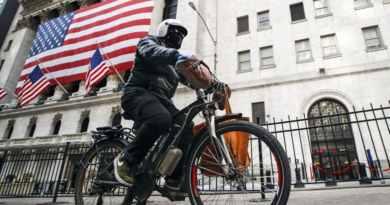A big supermarket chain is shaming suppliers like PepsiCo over ‘shrinkflation’—by labeling examples on shelves
It’s one thing to know about shrinkflation. It’s another to be warned about it in the grocery store.
“Shrinkflation” refers to companies giving customers less of their products for the same (or higher) price. The tactic has become widespread among consumer goods suppliers amid high inflation.
Now, the French supermarket chain Carrefour is exposing examples of it for shoppers, with labels on shelves reading: “This product has seen its volume or weight fall and the effective price from the supplier rise.”
Dozens of products have been hit with the labels since Monday, according to Reuters.
“The aim in stigmatizing these products is to be able to tell manufacturers to rethink their pricing policy,” Stefen Bompais, director of client communications at Carrefour, told the news agency. Carrefour will soon enter annual price negotiations with Nestlé, Unilever, PepsiCo, and other owners of well-known brands.
Among the shrinkflation examples it’s showing shoppers are Guigoz infant formula, produced by Nestlé, and a bottle of sugar-free peach-flavored Lipton iced tea, produced by PepsiCo.
Despite the cost of raw materials falling, consumers goods companies have not been cooperating with efforts to cut prices, Carrefour CEO Alexandre Bompard has argued. He’s found in ally in French finance minister Bruno Le Maire, who’s urged corporations to lower prices—and pointed a finger at Unilever, Nestle and PepsiCo for not complying.
Of course, retailers themselves have been accused by consumer groups of shrinkflation with their own products—among them, Carrefour. But European governments are increasingly trying to help consumers hurt by the rising cost of living, in part by pressuring big companies to lower prices.



